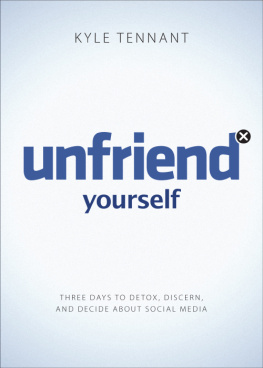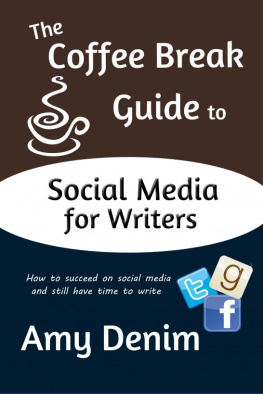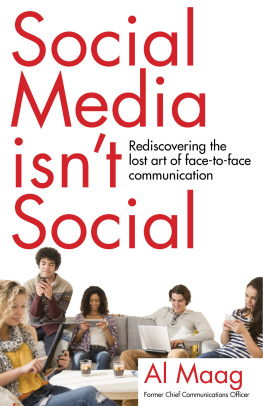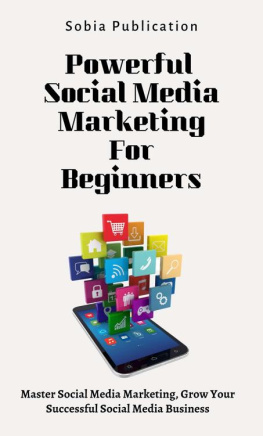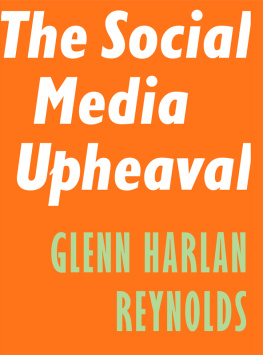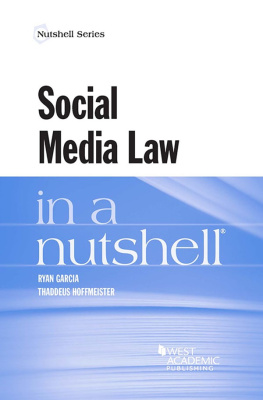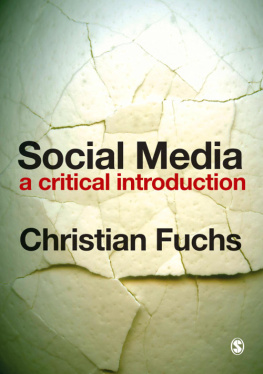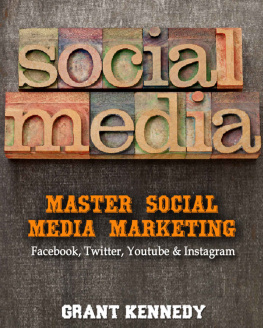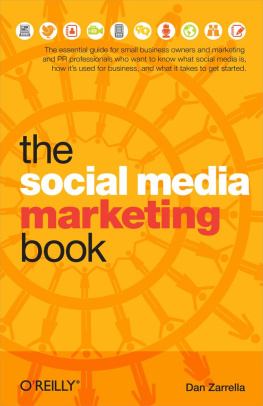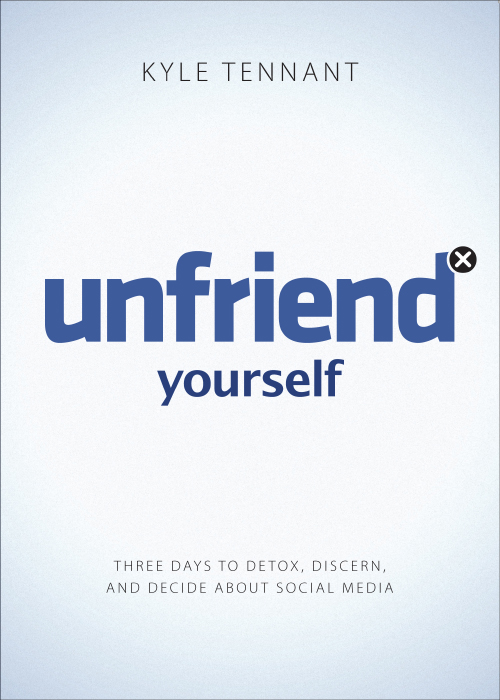Kyle has written a very timely and necessary work addressing our attachment to social media. Without throwing the baby out with the bathwater, Kyle challenges the Christian to a God-honoring approach to social media involvement. Well researched and thought through, Unfriend Yourself avoids the emotional arguments and instead presents a provocative must read for any students, young adults, and generations beyond who want to be responsible in approaching social media from a biblical worldview. This book will make you think! Thanks, Kyle, for this much needed, practical, and contemplative work.
Dr. Bob MacRae
Professor of Youth Ministry
Moody Bible Institute
With Unfriend Yourself Kyle strikes a resonate chord with his generation and provides needed leadership through the wonders and warnings of social media relationships. Kyles compelling research and personal insight successfully equip the reader with an effective biblical framework through which to address the growing place social media is taking in our daily lives. Embrace Kyles relevant and thought-provoking challenge, and find yourself better off for it.
Brian Kammerzelt
Communications Department Chair
Moody Bible Institute
unfriend
yourself
THREE DAYS TO DETOX, DISCERN,
AND DECIDE ABOUT SOCIAL MEDIA
KYLE TENNANT
M OODY PUBLISHERS
CHICAGO
2012 by
K YLE T ENNANT
All rights reserved. No part of this book may be reproduced in any form without permission in writing from the publisher, except in the case of brief quotations embodied in critical articles or reviews.
Scripture quotations are taken from The Holy Bible, English Standard Version. Copyright 2000, 2001 by Crossway Bibles, a division of Good News Publishers. Used by permission. All rights reserved.
Edited by Brandon OBrien
Cover design: Kathryn Joachim
Interior design: Smart Guys design
Library of Congress Cataloging-in-Publication Data
Tennant, Kyle.
Unfriend yourself : three days to detox, discern, and decide about social media / by Kyle Tennant.
p. cm.
Includes bibliographical references.
ISBN 978-0-8024-0953-9
1. Social media. 2. Online social networks. 3. Interpersonal relations. I. Title.
HM742.T46 2012
302.231dc23
2011043190
All websites and phone numbers listed herein are accurate at the time of publication, but may change in the future or cease to exist. The listing of website references and resources does not imply publisher endorsement of the sites entire contents. Groups and organizations are listed for informational purposes, and listing does not imply publisher endorsement of their activities.
We hope you enjoy this book from Moody Publishers. Our goal is to provide high-quality, thought-provoking books and products that connect truth to your real needs
and challenges. For more information on other books and products written and produced from a biblical perspective, go to www.moodypublishers.com or write to:
Moody Publishers
820 N. LaSalle Boulevard
Chicago, IL 60610
1 3 5 7 9 10 8 6 4 2
Printed in the United States of America
To my professors,
who taught me how to think
Contents
My name is Kyle, and over a year ago, I said farewell to Facebook. Well, at least I tried.
It all started in a class. (How often do we start stories like that?) I wanted to study how Christians and churches should use Facebook, so for my independent study course I planned to write a paper called The Application of Social Media in the Local Church. At the time, I was going to a rather net-savvy church and wanted to explore more fully how we could use these new technologies.
Then I met with my professor. Only a few years older than me and well-versed in the goings-on of communication theory, he seemed like the perfect fit. Except for when he told me that I was asking the wrong question. I was asking, How should the church be using social media? My professor kindly removed that first word, and in so doing, launched me on a journey that would change the way I think about the world. Its funny how changing one little word, how, could do so much.
So I began my study, seeking to answer my new question, Should the church be using social media at all? To answer this question, I had to create a new reading list. Instead of reading only works fresh off the presses of Christian publishing houses everywhere, I started reading works by authors who had been buried over a decade ago. Instead of only reading books on ministry practice, I started reading communications theory and texts on sociology, technology, and culture. While I did spend a significant amount of time reading contemporary works, I started with the dead guys, who provided me the framework to understand the newer stuff.
Before I knew it, the project was practically running away from me. I could barely keep up with the unending flow of data found in books, journal articles, magazines, newspapers, and, of course, blogs. Soon the magnum opus of my undergraduate career emerged: a ten thousand word essay on the dangers and ills of social media.
I started as someone eagerly following the latest social media trends. One semester later, I started to wonder if I should be using social media at all. I wanted to unfriend myself.
Now lets be clear: I have a Facebook account, and I check it three to five times daily (becoming a youth pastor kind of forced my hand, but well talk about that later). Im no stranger to Twitter (I tweet less than once a weekI find it an interesting experiment in networking), and I do occasionally blog. So I have not given up on social media entirely (more on that later, too). But what I have come to see is that one of the dominant cultural metaphors of our time is not to be trusted, nor is it to be lauded. In fact, it may be our generations greatest enemy. Okay, so maybe thats exaggeratingbut the point is that social media may do far more damage to our relationships, and our understanding of them, than we may think. Though social media promise us relationships and community, they may in truth be promising us a lie.
In essence, that is what this book explores. In the following pages, I will take you on the same journey I have been on for the last year or so, offering you everything I have read and thought on the subject. In so doing, I hope to evaluate the claims social media have made about us and our society, and hopefully debunk some of them. In Unfriend Yourself, I also hope you and I will learn to go beyond the social media options to deepen and appreciate true friendships.
This book is designed to be read over a weekendthough you dont have to do it that way, Id really encourage it. The book is also designed to be read while you are taking three days off from your favorite social networkprobably Facebook. Its a time to detox. Its time for a weekendand maybe longerto unfriend yourself from your favorite social media.
In some ways, this book becomes a guided Facebook fast, taking the time you would be spending updating your status and posting photos and replacing it with reading this book. I promise, Scouts honor, that you can read each chapter in under an hour, even if you are a bit of a slow reader.
At the end of every chapter, youll find a few action steps to take, like writing your best friend a letter, or finding someone to hug (youll see). These action steps are also part of the whole Unfriend Yourself experience; they are my attempt at helping you immediately apply what you are reading.

